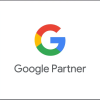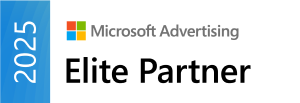From June 2020, as soon as these changes come into force, SEM agencies will have to put a lot more work into obtaining or maintaining Google Partner status. Some requirements are much harder to meet than before. From this summer forward, SEM owners will have to get used to the fact that existing Specializations will now be classified as Skills. And this is only the beginning of changes.
Certificate update
Currently, one of the requirements set by Google is to have at least one user in the team who has any of the Google Ads certificates. Since June 2020, the company will have to ensure that at least half of the authorized users have updated certificates. They can be obtained or updated only on the new Skillshop platform (formerly known as Academy for Ads). Thus, you will need to link Google Ads accounts to the Skillshop platform.
In addition, there will have to be at least one person specialized in each Google Ads service in the agency’s team. This means that the company will have to have at least one expert on search advertising, advertising on the Display Network, video advertising and advertising on Google Shopping. At this time, it is not certain how Google will verify the number of authorized specialists present in a given agency. Most likely, however, it will be checked based on the number of accounts linked in the manager.
Increased spending on advertising campaigns
Another big change is the issue of advertising expenditure. Previously, the agency’s quarterly spending had to reach at least $10,000 in all accounts it managed. Starting from June 2020, this amount will increase to $20,000, which is supposed to indicate the growing activity of the agency. This amount will have to be spent on advertising in the same period as before, i.e. 90 days.
This change will particularly affect companies that are just starting their business in the SEM field. It is them who will have the most difficulties in joining the affiliate program. For large companies that already have an established position on the market, this change shouldn’t be a big issue.
Implementing Google’s recommendations
The last and probably the most controversial change is the need to demonstrate the effectiveness of the agency’s activities in maximizing profits by configuration and optimal Google campaign management. This effectiveness will be assessed on the basis of the data contained in the “Recommendations” tab, but rejected recommendations will not affect the assessment of the agency’s effectiveness.
Also, partners don’t have to accept all recommendations or achieve a 100% optimization result in terms of new requirements for the Google Partner status. The threshold for the new requirement is 70% of the implemented recommendations.
This can be a significant problem for some SEM agencies that don’t always follow Google’s recommendations. It happens when they have a negative impact on the overall results of advertising campaigns or the relationship between the agency and the client. However, from June on, it will be necessary to obtain or maintain the status of a Google Partner, let alone a Premium Partner.
Examples of Google recommendations include:
- Increase your budget (which can be problematic for a customer with a fixed or small budget);
- Raise target CPA (in a situation where we have already set CPA in accordance with the maximum requirements of the client);
- Use call extensions (which can also be troublesome when the campaign is carried out outside of business hours, when none of the employees are in the office).
Ethical dilemma
These changes can cause a big moral dilemma among agencies. On the one hand, agencies are seeking to become a Google Partner. This status positions the agency to its potential clients in the category of an expert who can be trusted. On the other hand, however, each of the professional agencies wants to do their job so that the client can see real profits from the campaign.
Using Google’s Recommendations isn’t always is the best solution. The new requirements will mean that agencies will have to choose between what is best for the client and what is best in terms of Google recommendations and becoming a Partner.
A new “Client Partners” badge has been created for agencies that don’t want to choose between the automatic implementation of all Google Recommendations in their clients’ campaigns and the total loss of Google Partner status. It can be placed on your website instead of existing badges or coexist with them. However, this is not an official Google badge — it was established as an alternative to the Google Partner Program.
Placing the badge on your website tells clients that you put the reliable work on their campaign above maintaining the status of a Partner. It also means that you won’t increase your spending on the advertising platform unnecessarily. All information on how to join the program and obtain the “Client Partners” badge can be found here.
Google Premium Partners
As you can guess, the changes introduced in the affiliate program will also have an impact on the Premium Partner Status granted by Google. This title is awarded once a year to only 3% of the best agencies that already have the status of a standard Partner.
The following factors are considered when choosing the best partners:
- increase in the number of customers
- maintaining the current number of customers
- annual advertising expenditure
The evaluation is carried out by the search engine every year. What’s important, the Premium Partner status doesn’t exist in all markets around the world.
Of course, soon an effective implementation and compliance with the already mentioned Google Recommendations in accordance with the new requirements will have a huge impact on obtaining the Premium Partner status, as is the case with other partner agencies.
Companies that meet the requirements starting from June 2020 will gain access to the new Google Partner badge, new status and new opportunities to distinguish their agency from the competition. You can already check if your company meets the new requirements and prepare for their implementation.
All you have to do is go to the Google Partners Program tab and read the information it contains. Thanks to this, you will know if your agency can apply or maintain the status of a Partner, and if not, what steps to take to make it possible.





